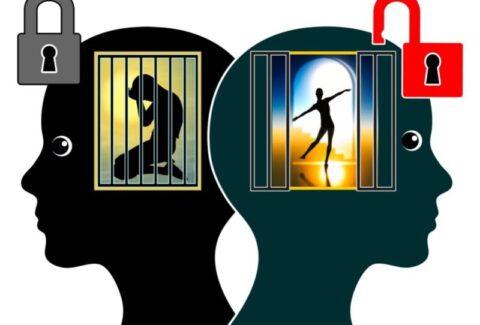The Benefits of Reminiscence Therapy: Enhancing Well-Being Through Reflection

The Benefits of Reminiscence Therapy: Enhancing Well-Being Through Reflection
Introduction
Reminiscence therapy, a therapeutic approach that involves reflecting on past experiences, has emerged as a powerful tool in enhancing emotional and cognitive well-being, particularly for older adults. By encouraging individuals to revisit and share their memories, Reminiscence Therapy fosters a sense of continuity, meaning, and social connection. This article explores the multifaceted benefits of Reminiscence Therapy, supported by scientific research and practical applications.
Understanding Reminiscence Therapy
Reminiscence therapy involves guided or spontaneous recollection of past experiences, often facilitated through various prompts such as photographs, music, or personal artifacts.[1] It can be conducted in individual or group settings, with the aim of:
- Stimulating Memory: Encouraging recall of past events to maintain cognitive function.
- Fostering Social Interaction: Creating opportunities for sharing and connecting with others.
- Enhancing Emotional Well-being: Allowing individuals to reflect on their lives and find meaning.
Benefits of Reminiscence Therapy
Emotional and Psychological Benefits
- Enhanced Mood and Reduced Depression:
Research has demonstrated that Reminiscence Therapy can lead to significant improvements in mood and reductions in symptoms of depression.[2] A meta-analysis published in the International Journal of Geriatric Psychiatry found that Reminiscence Therapy effectively reduces depressive symptoms in older adults by helping them reflect on positive life experiences and achievements. - Increased Life Satisfaction:
Reflecting on past accomplishments and meaningful experiences helps individuals gain a sense of fulfillment and satisfaction. A study in The Journal of Gerontological Nursing highlighted that life review processes within Reminiscence Therapy contribute to improved overall life satisfaction.[3]
Cognitive Benefits
- Cognitive Stimulation:
Engaging in Reminiscence Therapy stimulates cognitive[4] processes by encouraging memory recall and narrative construction. A systematic review in Ageing Research Reviews indicated that Reminiscence Therapy helps maintain cognitive function and may delay cognitive decline by regularly activating memory and cognitive skills. - Preservation of Identity:
By exploring and recounting past experiences, individuals can reinforce their sense of identity and continuity. This aspect is crucial for individuals with dementia, as Reminiscence Therapy helps them retain a connection to their personal history and self-concept.
Social Benefits
- Improved Social Interaction:
Reminiscence Therapy often takes place in group settings, where sharing memories fosters social bonds and reduces feelings of loneliness. According to a study published in International Psychogeriatrics, group Reminiscence Therapy[5] enhances social interaction and provides emotional support through shared experiences. - Strengthened Relationships:
Engaging in Reminiscence Therapy can improve relationships between individuals and their caregivers or family members. By facilitating conversations about the past, it creates opportunities for deeper connections and mutual understanding.
Practical Applications and Implications
- Geriatric Care:
In geriatric care settings, Reminiscence Therapy is used to support older adults[6] in reflecting on their lives and finding meaning. This approach is particularly effective in managing symptoms of depression and anxiety, as well as providing emotional comfort. - Dementia Care:
Reminiscence Therapy is an essential component of dementia care, helping individuals with cognitive impairments connect with their past and maintain a sense of identity. By integrating personal memories into care plans, therapists can improve the quality of life for those with dementia.[7] - Palliative Care:
In palliative care, reminiscence therapy can offer solace and a sense of closure for individuals facing terminal illnesses.[8] Reflecting on meaningful life experiences allows patients to achieve a sense of peace and fulfillment.
Conclusion
Reminiscence Therapy provides a range of benefits that enhance emotional, cognitive, and social well-being. By fostering reflection on past experiences, this therapeutic approach helps individuals find meaning, strengthen social connections, and maintain cognitive function. As we continue to recognize the value of Reminiscence Therapy, it offers a powerful tool for improving the quality of life for individuals across various settings.
[1] Bhar, Sunil S. “Reminiscence therapy: A review.” (2014).
[2] Jo, HaeKyung, and Eunju Song. “The effect of reminiscence therapy on depression, quality of life, ego-integrity, social behavior function, and activies of daily living in elderly patients with mild dementia.” Educational gerontology 41.1 (2015): 1-13.
[3] Shin, Eunyoung, et al. “Effects of reminiscence therapy on quality of life and life satisfaction of the elderly in the community: A systematic review.” BMC geriatrics 23.1 (2023): 420.
[4] Lök, Neslihan, Kerime Bademli, and Alime Selçuk‐Tosun. “The effect of reminiscence therapy on cognitive functions, depression, and quality of life in Alzheimer patients: Randomized controlled trial.” International journal of geriatric psychiatry 34.1 (2019): 47-53.
[5] Latha, K. S., et al. “Reminiscence therapy: An overview.” Middle East Journal of Age and Ageing 11.1 (2014): 18-22.
[6] Lodha, Pragya, and Avinash De Sousa. “Reminiscence therapy in geriatric mental health care: A clinical review.” Journal of Geriatric Mental Health 6.1 (2019): 7-13.
[7] Saragih, Ita Daryanti, et al. “Effects of reminiscence therapy in people with dementia: A systematic review and meta‐analysis.” Journal of Psychiatric and Mental Health Nursing 29.6 (2022): 883-903.
[8] Hesse, Michaela, et al. “Patients’ priorities in a reminiscence and legacy intervention in palliative care.” Palliative care and social practice 13 (2019): 2632352419892629.






